Recent Blog Posts
Does it Matter if You Choose Chapter 7 vs. Chapter 13 Bankruptcy?
 When facing overwhelming debt, you may consider filing for bankruptcy as a way to gain a fresh financial start. However, figuring out if you should choose a Chapter 7 or Chapter 13 bankruptcy can be daunting. A Texas lawyer can help you determine the differences between these two types of bankruptcy and help you understand why your choice matters.
When facing overwhelming debt, you may consider filing for bankruptcy as a way to gain a fresh financial start. However, figuring out if you should choose a Chapter 7 or Chapter 13 bankruptcy can be daunting. A Texas lawyer can help you determine the differences between these two types of bankruptcy and help you understand why your choice matters.
Understanding Chapter 7 Bankruptcy
Chapter 7 bankruptcy, also known as “liquidation” bankruptcy, is designed to help individuals quickly discharge most of their unsecured debts, such as credit card balances, medical bills, and personal loans. To qualify for Chapter 7 in Texas, you must pass a means test comparing your income to the state’s median income. The process typically takes three to six months to complete if you qualify. Additionally, the process has strengths and weaknesses, including:
The Dos and Do Nots of Bankruptcy Trustees
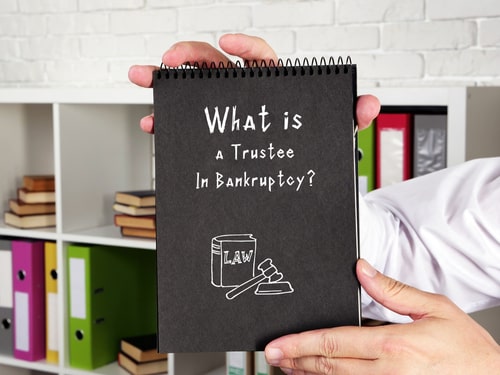 When filing for bankruptcy, selecting the right trustee is important to ensure a smooth and successful process. A bankruptcy trustee is responsible for overseeing your case, managing your assets, and distributing funds to creditors. A Texas lawyer can help you understand the dos and do nots of choosing a bankruptcy trustee.
When filing for bankruptcy, selecting the right trustee is important to ensure a smooth and successful process. A bankruptcy trustee is responsible for overseeing your case, managing your assets, and distributing funds to creditors. A Texas lawyer can help you understand the dos and do nots of choosing a bankruptcy trustee.
Do: Understand the Role of a Bankruptcy Trustee
A bankruptcy trustee is an impartial party appointed by the court to administer your bankruptcy case. Their primary duties include:
- Reviewing your bankruptcy petition and schedules
- Conducting the 341 meeting of creditors
- Investigating your financial affairs
- Liquidating non-exempt assets (in Chapter 7 cases)
- Distributing funds to creditors
How to Tell if Bankruptcy is Right for You
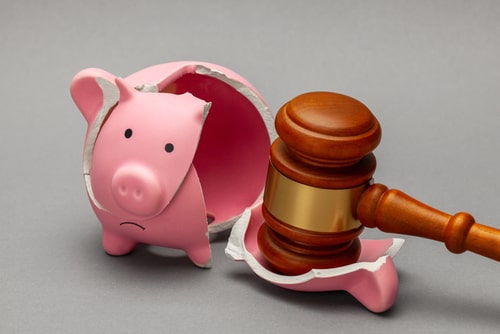 Financial troubles can be incredibly stressful for anyone. If you are struggling with debt, you may be wondering if bankruptcy is the solution. Bankruptcy is a legal process that can help eliminate or reorganize your debts, but it is not right for everyone. A Texas lawyer can help with some factors to consider when determining if bankruptcy might be the best path forward.
Financial troubles can be incredibly stressful for anyone. If you are struggling with debt, you may be wondering if bankruptcy is the solution. Bankruptcy is a legal process that can help eliminate or reorganize your debts, but it is not right for everyone. A Texas lawyer can help with some factors to consider when determining if bankruptcy might be the best path forward.
Severity of Debt Burden
One of the primary indicators that bankruptcy could be appropriate is if your debt load has become unmanageable. Ask yourself if you are consistently behind on minimum payments, being charged late fees, or receiving collection calls. If debt payments are consuming a significant portion of your income each month, making it difficult to afford other necessities, bankruptcy may provide relief.
No Feasible Debt Repayment Plan
Before filing for bankruptcy, you should attempt to negotiate with creditors and create a structured repayment plan. However, if your financial situation makes repaying the full amounts owed unrealistic, even with debt consolidation or settlement, bankruptcy allows a fresh start.
Steps When Applying for a Mortgage After Bankruptcy
 Declaring bankruptcy can offer significant debt relief, yet it also affects your credit score and the potential to secure new credit lines, such as mortgages. Keep in mind that bankruptcy does not indefinitely prevent you from acquiring a home in Texas. With the right preparation and guidance from a Texas lawyer, you can improve your chances of mortgage approval after bankruptcy.
Declaring bankruptcy can offer significant debt relief, yet it also affects your credit score and the potential to secure new credit lines, such as mortgages. Keep in mind that bankruptcy does not indefinitely prevent you from acquiring a home in Texas. With the right preparation and guidance from a Texas lawyer, you can improve your chances of mortgage approval after bankruptcy.
Make Sure You Understand Waiting Periods
Under Texas law, you must observe specific waiting periods after bankruptcy before applying for certain types of loans, including mortgages backed by government programs like FHA, VA, and USDA:
- Chapter 7 Bankruptcy: You should wait two years from the discharge date for FHA, two years from the discharge date for VA, and three years from the discharge date for USDA
How Bankruptcy May Affect Future Loans
 Filing for bankruptcy can provide much-needed debt relief, but it also has consequences that may impact your ability to obtain future loans. In Texas, the bankruptcy laws aim to help honest debtors get a fresh start while ensuring creditors receive fair treatment. Understanding how bankruptcy affects future lending is crucial when considering this option. A Texas lawyer can help you determine how future loans may affect you.
Filing for bankruptcy can provide much-needed debt relief, but it also has consequences that may impact your ability to obtain future loans. In Texas, the bankruptcy laws aim to help honest debtors get a fresh start while ensuring creditors receive fair treatment. Understanding how bankruptcy affects future lending is crucial when considering this option. A Texas lawyer can help you determine how future loans may affect you.
Credit Score Impact
One of the most significant effects of bankruptcy is the damage it can cause to your credit score. Your credit report will reflect the bankruptcy filing for seven to ten years, depending on the type of bankruptcy you filed. Lenders typically view bankruptcy as a high-risk factor, which can make it challenging to obtain new credit or loans at favorable terms. However, it is important to note that the impact on your credit score diminishes over time, and responsible financial behavior after bankruptcy can help rebuild your credit rating.
Filing for Bankruptcy to Stop Foreclosure on Your Home
 If you are facing foreclosure on your home in Texas, you may be wondering if filing for bankruptcy can help you keep your property. The answer is yes, but the effectiveness of this strategy depends on your specific circumstances and the type of bankruptcy you file. A Texas lawyer can help you determine how this option can stop foreclosure and what you need to know before making a decision.
If you are facing foreclosure on your home in Texas, you may be wondering if filing for bankruptcy can help you keep your property. The answer is yes, but the effectiveness of this strategy depends on your specific circumstances and the type of bankruptcy you file. A Texas lawyer can help you determine how this option can stop foreclosure and what you need to know before making a decision.
The Automatic Stay
Filing for bankruptcy triggers an immediate automatic stay. This legal measure temporarily stops all collection activities against you, such as foreclosure processes. It provides a period of relief to restructure your finances and formulate a plan to manage your debts.
Chapter 7 Bankruptcy and Foreclosure
Chapter 7 bankruptcy, also known as liquidation bankruptcy, can temporarily stop foreclosure. However, it does not eliminate your mortgage debt or provide a long-term solution for keeping your home. Once the bankruptcy case is closed, the lender can resume foreclosure proceedings if you are still behind on payments.
The Role of Bankruptcy Trustees in Texas
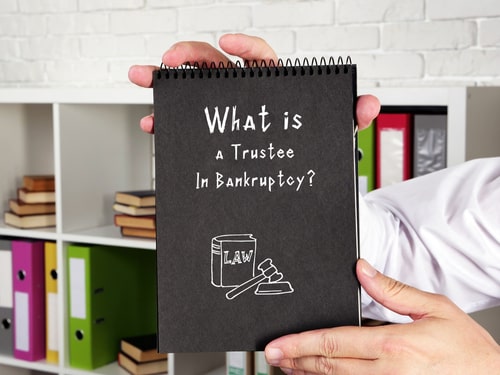 If you are overwhelmed by debt, filing for bankruptcy is often a great way to get some breathing room again. However, bankruptcy is not simply filling out forms and attending a court hearing. It involves various parties, each with particular roles and responsibilities, working together to ensure that the case is handled fairly and in accordance with state and federal laws. One of the most important players in this process is the bankruptcy trustee. A Texas lawyer can help you figure out the steps and how a trustee is beneficial.
If you are overwhelmed by debt, filing for bankruptcy is often a great way to get some breathing room again. However, bankruptcy is not simply filling out forms and attending a court hearing. It involves various parties, each with particular roles and responsibilities, working together to ensure that the case is handled fairly and in accordance with state and federal laws. One of the most important players in this process is the bankruptcy trustee. A Texas lawyer can help you figure out the steps and how a trustee is beneficial.
What is a Bankruptcy Trustee?
A bankruptcy trustee is an impartial individual appointed by the court to oversee the bankruptcy process. In Texas, the United States Trustee’s Office appoints bankruptcy trustees for Chapter 7 and Chapter 13 cases. These trustees manage the debtor’s assets, review financial documents, and ensure the bankruptcy case proceeds smoothly.
Dealing with Creditors During the Bankruptcy Process
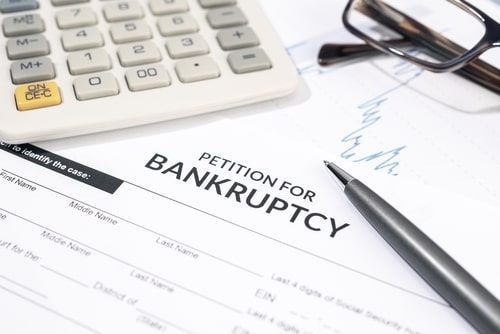 One of the most daunting aspects of facing financial hardship and considering bankruptcy is dealing with creditors. It is essential to understand your rights and the proper steps to take when communicating with creditors throughout the bankruptcy process. A Texas lawyer can help you effectively handle creditors as you go through your bankruptcy.
One of the most daunting aspects of facing financial hardship and considering bankruptcy is dealing with creditors. It is essential to understand your rights and the proper steps to take when communicating with creditors throughout the bankruptcy process. A Texas lawyer can help you effectively handle creditors as you go through your bankruptcy.
What is the Automatic Stay?
Once you file for bankruptcy in Texas, an automatic stay goes into effect. This legal protection prohibits creditors from continuing collection efforts, including phone calls, letters, wage garnishments, and lawsuits. The automatic stay provides a temporary reprieve, allowing you to focus on the bankruptcy process without the constant pressure from creditors.
Bankruptcy Fraud: Pitfalls to Avoid During Your Case
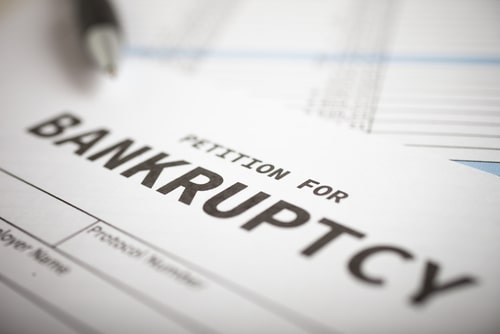 A bankruptcy filing can offer a new financial beginning to individuals overwhelmed by debt. Yet, the process can be complex, and inadvertent errors can have repercussions, such as accusations of bankruptcy fraud. A Texas lawyer can help you learn about the common pitfalls to avoid during your bankruptcy case.
A bankruptcy filing can offer a new financial beginning to individuals overwhelmed by debt. Yet, the process can be complex, and inadvertent errors can have repercussions, such as accusations of bankruptcy fraud. A Texas lawyer can help you learn about the common pitfalls to avoid during your bankruptcy case.
What Exactly is Bankruptcy Fraud?
Bankruptcy fraud is a federal crime that occurs when an individual knowingly and fraudulently conceals assets, makes false statements, or files incomplete forms in connection with a bankruptcy case. This can include hiding property, lying about income or debts, or intentionally filing inaccurate documents with the court. It is important to understand that bankruptcy fraud can be committed by the person filing for bankruptcy and by creditors, attorneys, or other individuals involved in the case. Committing bankruptcy fraud can result in severe penalties, including fines, restitution, and even imprisonment.
The Impact of Bankruptcy on Tax Obligations in Texas
 When faced with overwhelming debt, bankruptcy can allow you to breathe again financially. However, it is crucial to understand the impact bankruptcy can have on your tax obligations. A Texas lawyer can help you determine how different types of bankruptcy affect your taxes and what you need to know to navigate the process effectively.
When faced with overwhelming debt, bankruptcy can allow you to breathe again financially. However, it is crucial to understand the impact bankruptcy can have on your tax obligations. A Texas lawyer can help you determine how different types of bankruptcy affect your taxes and what you need to know to navigate the process effectively.
The Basics of Bankruptcy and Taxes
Bankruptcy is a legal process designed to help individuals and businesses eliminate or restructure their debts. The two most common types of bankruptcy in Texas are Chapter 7 and Chapter 13. While bankruptcy can relieve many debts, it is important to note that it does not automatically eliminate all tax obligations.
Chapter 7 Bankruptcy and Tax Debts
Chapter 7 bankruptcy, or liquidation bankruptcy, can discharge certain types of tax debts. To be eligible for discharge, the tax debt must meet specific criteria:






